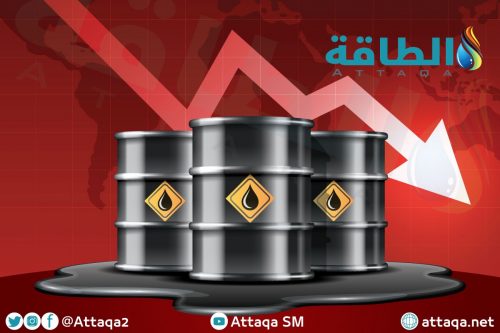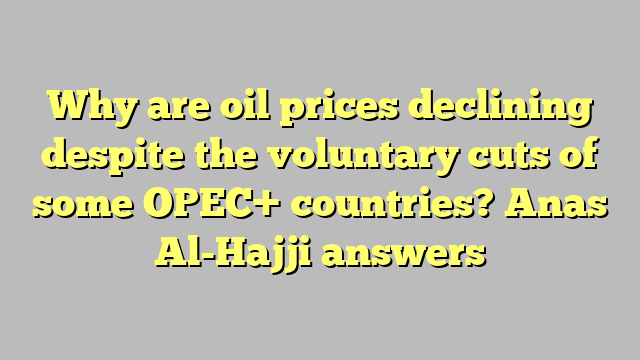The editorial advisor of the specialized energy platform, energy economist Dr. Anas Al-Hajji, explained the reasons for the decline in crude oil prices during the recent period, which pushed Brent crude into the seventies.
Al-Hajji explained, in a new episode of the program “Energy humanitiesHe presented it on Twitter under the title “Oil Market Surprises… Do Not Stop,” that a number of the large OPEC+ coalition countries announced a voluntary production cut of 1.66 million barrels per day.
He said, “This reduction is in addition to what was announced last October 5 (2022), regarding a reduction in the production ceiling, but despite that, oil prices fell dramatically, and Brent crude fell to the seventies.”
He pointed to the difference between the actual production and the production ceiling, as the production ceiling decreased by about two million barrels per day, while the voluntary cut is not clear its real amount now, and despite that, oil prices fell.
Why did oil prices fall?
Energy economist Dr. Anas Al-Hajji said that the announcement of the voluntary cut was surprising to the markets, but the program’s followers know that the reports since last December and last January focused on the idea that OPEC and OPEC + must make this cut in the future. The first quarter of 2023.
He continued, “It was known from the beginning that major problems would occur during the first quarter of 2023, and that OPEC countries and the OPEC + alliance must cut production, otherwise prices will drop,” pointing out that what was mentioned contradicts the opinions of many analysts in the market.
He pointed out that it was quite clear since last March 2022, after the Russian invasion of Ukraine, that Russian production would not decrease in the following months, and that Russia’s exports would not decrease either, while senior analysts and others were talking about a significant decline in Russia’s production and exports at the time. ..
Then came the openness of China, which convinced many experts that it will lead to a significant increase in the demand for oil, and then the oil prices will rise dramatically, pointing to his warning since last December that this openness will lead to an increase in demand in the transportation sector only, while the demand for other sectors will grow. other later.
Dr. Anas Al-Hajji pointed out that the Chinese economy is weak, and it needs a long time to recover, and therefore the impact of openness is limited, and prices will not rise in the way that they say about it. On the one hand, there is the issue of Russian oil, and on the other hand, there is the Chinese demand for oil, as he confirmed that Both have been exaggerated by analysts.
Foreign trade of oil and gas
Dr. Anas Al-Hajji, editor-in-chief of the specialized energy platform, said that there have been international changes in the oil and gas trade, which have led to a decline in oil prices, as there are problems caused by the sanctions and Russia’s desire to transfer its exports to other countries.
Al-Hajji indicated that there is another crisis, which is the deterioration of the type of data in the market, which made analyzing this data difficult for many in this case, which in turn led to many false reports in the market, and we know these results now.
As a result of bad data, according to Dr. Anas al-Hajji, Russian oil is now reaching all parts of the world, despite all the sanctions, as it reaches the United States and most European Union countries, which impose sanctions on it on the one hand, and import it on the other.
He explained that the countries of the European Union buy oil products from India, China and some other countries that manufacture Russian crude oil, and there are some OPEC and OPEC + countries that import Russian oil and Russian oil products, and re-export them, including Arab countries.
Energy economist Dr. Anas Al-Hajji added: “All these major changes in the direction of international changes have caused problems for those who do not know their details, but the idea is that there is sufficient supply, and the demand for oil is less than expected.”
He continued: “The problem is that there are expectations, especially from large international organizations, that were higher than the truth, and then with time these expectations were lowered, but the demand for oil itself did not decrease, and it is still increasing, but at lower rates than expected.”
related topics..
Also read..

Leave a Reply